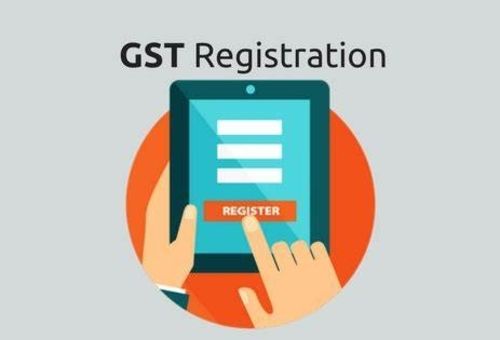Top Tips for a Smooth Singapore GST Registration Experience
Top Tips for a Smooth Singapore GST Registration Experience
Blog Article
Browsing the Complexities of GST Enrollment: Expert Tips and Finest Practices for Easier Compliance
From deciphering registration needs to using technical tools for streamlined processes, the trip in the direction of smoother GST conformity is diverse and nuanced. Remain tuned to uncover important strategies and insights that can aid services guide with the complexities of GST enrollment with skill and self-confidence.
Comprehending GST Registration Needs

Along with turnover thresholds, organizations taking part in interstate sales or providing taxable solutions may additionally be needed to sign up for GST, even if their turnover is below the suggested limitation (Singapore GST Registration). Understanding these thresholds and requirements is necessary to prevent charges and make certain smooth operations within the legal structure
Moreover, companies must gather and prepare the essential documentation, such as proof of identity, address, organization consolidation, and checking account details, prior to starting the GST enrollment process. Falling short to provide accurate details or satisfy the registration deadlines can lead to fines or various other legal effects. Therefore, organizations ought to remain notified regarding the certain GST enrollment demands appropriate to their procedures to keep conformity and stay clear of prospective concerns.
Organizing Necessary Paperwork
Services embarking on the GST registration procedure must carefully compile and arrange the essential documentation needed for entry. The crucial records generally needed for GST enrollment consist of proof of organization registration or incorporation, address and identification evidence of the company owners or companions, bank account details, evidence of primary location of business, and permission forms. Making sure that these documents are easily available and arranged can improve the registration procedure and prevent hold-ups or beings rejected.
To properly arrange crucial documentation, services need to create a central system for storing and classifying the called for paperwork (Singapore GST Registration). Utilizing digital storage services can assist keep easy gain access to and make certain that files are safely kept. Furthermore, establishing a checklist of all required files can offer as a handy tool to track what has been gathered and what is still needed for submission

Leveraging Innovation for Effectiveness
Enhancing functional performance through technical assimilation is paramount for contemporary businesses navigating the complexities of GST enrollment. One of the crucial ways technology can assist in GST registration is via the use of automated software application solutions.
Furthermore, modern technology can help with smooth interaction with tax obligation authorities. On-line websites and communication devices enable companies to send files, solve questions, and receive updates in a more effective fashion. This not only expedites the enrollment process however also aids in maintaining clear and reputable interaction with the relevant authorities.
Moreover, cloud-based storage space services provide a protected platform for companies to store and accessibility their monetary data, making sure conformity with GST record-keeping needs. By streamlining data storage space and automating processes, businesses can boost their general efficiency and precision in GST registration procedures.
Proactive Compliance Monitoring

To ensure reliable aggressive compliance surveillance, companies must establish robust inner controls, conduct routine audits, and leverage automation devices for real-time monitoring of GST purchases. Regular training sessions for staff members on GST compliance demands can also aid in producing a culture of compliance within the company. In addition, engaging with tax professionals or professionals can supply important insights and guidance on navigating complex GST regulations.
Engaging With Specialist Consultants
Involving skilled tax professionals can dramatically boost a business's understanding and compliance with elaborate GST laws. Professional specialists bring a Read Full Article riches of expertise and experience to the table, assisting businesses browse the complexities of GST enrollment with ease. By leveraging their knowledge, business can ensure precise filings, decrease the risk of errors, and remain up-to-date with the most Full Report up to date regulatory modifications.
When involving with professional specialists, it is important to choose experts with a strong track record in GST compliance (Singapore GST Registration). Try to find consultants who have a deep understanding of the pertinent legislations and policies, as well as experience collaborating with services in your sector. Reliable interaction is vital in this collaboration, so see to it to plainly define your expectations and develop regular touchpoints to review progression and resolve any kind of problems
Moreover, specialist professionals can offer beneficial insights and guidance on maximizing your tax obligation strategy, identifying prospective cost-saving chances, and enhancing your conformity processes. Overall, purchasing professional consultancy solutions can go a lengthy means in ensuring smoother GST conformity and staying clear of pricey blunders.
Final Thought
In conclusion, browsing the intricacies of GST registration calls for a complete understanding of the demands, company of crucial paperwork, leveraging innovation for performance, positive conformity tracking, and interaction with expert consultants. By complying with these best practices, organizations can make sure smoother conformity with GST laws and stay clear of potential charges or fines. It is important to stay informed, aggressive, and diligent in managing GST registration to keep compliance and promote economic stability.
To ensure conformity with tax obligation laws, services have to thoroughly recognize the intricate demands for GST registration. Product and Solutions Tax (GST) is a value-added tax levied on many products and solutions in a nation, making it vital for services to register for GST to avoid lawful consequences.Moreover, businesses must collect and prepare the essential documentation, such as proof of identity, address, business incorporation, and bank account details, before initiating the GST registration process. Companies should remain educated about the details GST registration needs suitable to their operations to preserve compliance and stay clear of prospective problems.
The vital files typically required for GST registration include evidence of organization enrollment or consolidation, identity and address evidence of the service owners or companions, bank account information, evidence of major location of service, and permission forms.
Report this page